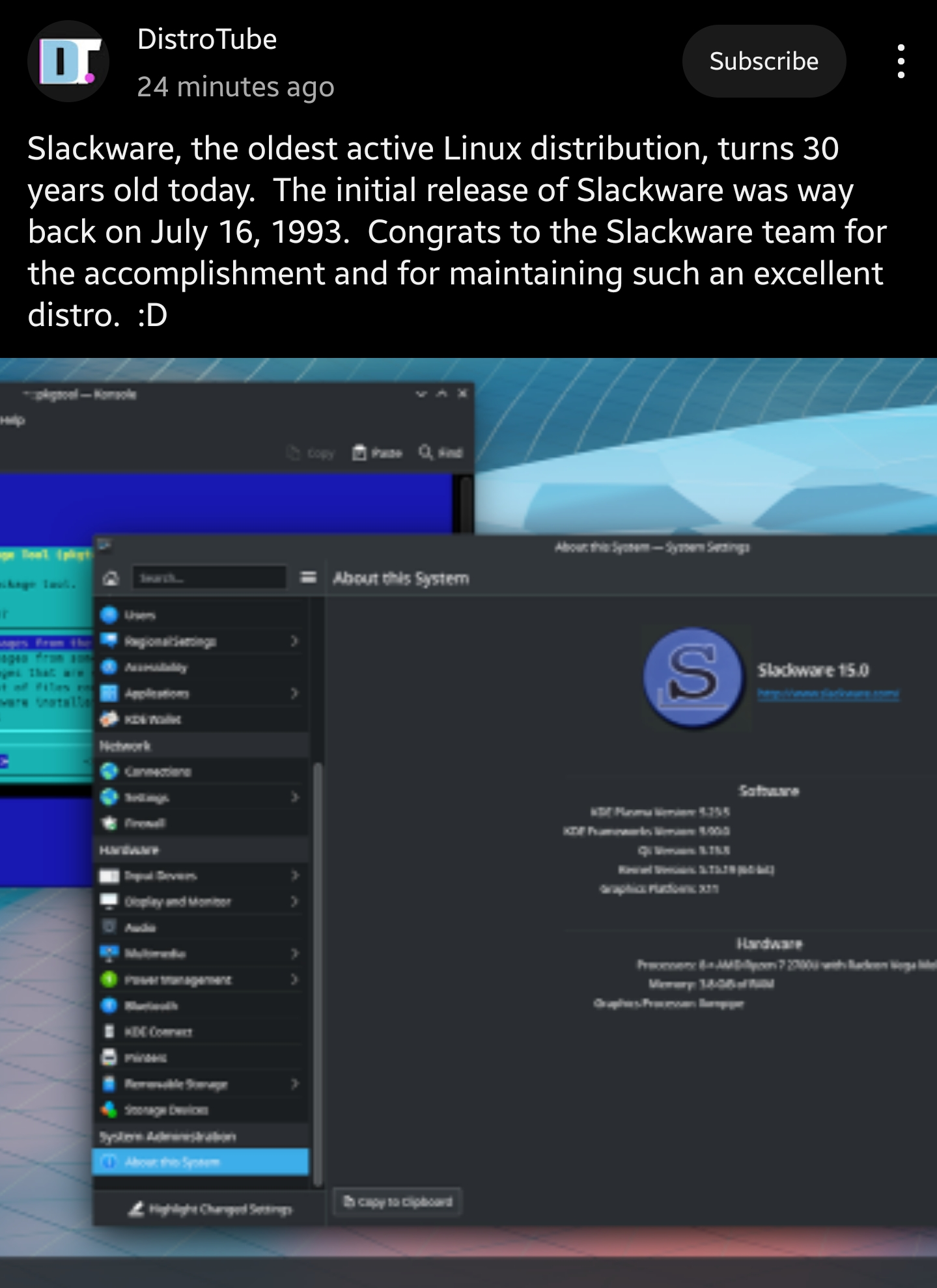this post was submitted on 16 Jul 2023
927 points (98.6% liked)
Linux
50581 readers
1002 users here now
From Wikipedia, the free encyclopedia
Linux is a family of open source Unix-like operating systems based on the Linux kernel, an operating system kernel first released on September 17, 1991 by Linus Torvalds. Linux is typically packaged in a Linux distribution (or distro for short).
Distributions include the Linux kernel and supporting system software and libraries, many of which are provided by the GNU Project. Many Linux distributions use the word "Linux" in their name, but the Free Software Foundation uses the name GNU/Linux to emphasize the importance of GNU software, causing some controversy.
Rules
- Posts must be relevant to operating systems running the Linux kernel. GNU/Linux or otherwise.
- No misinformation
- No NSFW content
- No hate speech, bigotry, etc
Related Communities
Community icon by Alpár-Etele Méder, licensed under CC BY 3.0
founded 5 years ago
MODERATORS
you are viewing a single comment's thread
view the rest of the comments
view the rest of the comments

Ah Slackware, the first time that I learned software could damage hardware. It has the option to also configure hsync on your CRT monitor, and if said monitor didn't correctly validate the range it would permanently fuck it up.
I learned that lesson as a 12 year old in the early 90's on an original IBM PC 5150 with a 5151 monochrome monitor, fucking with TSR's in DOS 3.1. It must've made the graphics card change timing modes and the monitor immediately blew a fuse. My dad then soldered in a fuseholder so the fuse in the monitor can be replaces as needed.
Out of fear of doing further damage, I did stay away from the particular TSRs that had any relation to changing video timing modes and it didn't happen again.
Haha, TSR, man, good old memories... Is there a famous TSR called sidekick? Chain of CD 09H... :)
So I'm not the only one who fried a monitor trying to get X11 working...
Really? I didn't know it was possible. How's that happened?
X11 used to require very cumbersome MANUAL configuration, where you would specify the exact parameters of your keyboard, mouse, monitor, and other peripherals. If you accidentally ended up overclocking your monitor it would melt. For at least a decade, it has been able to run with no configuration file at all, but in the 90s/early 2000s you had to produce a unique >75 line xorg.conf file for your specific hardware.
Thanks, that's terrifying and I'm glad that I never had to do it
God that brings back memories
Oh no, for sure! I did it with Debian in '98-99.
That certainly makes me feel better for letting the Magic Smoke out.
Definitely a hardware issue, not a software one.
Oh man, I completely forgot this happening to me lol.